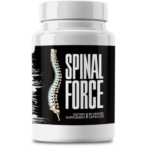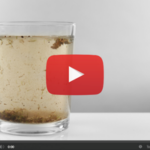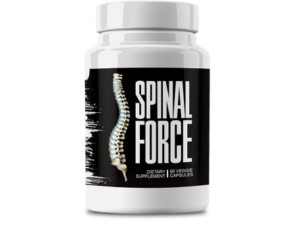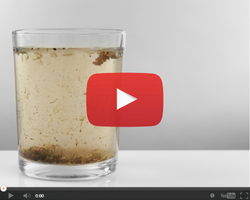This Village-Made Chinese Pain Reliever Eliminates Back And Joint Pain!
Natural Remedies for Relieving Pain in Jaw Joint

Understanding Pain in the Jaw Joint: A Closer Look
If you've ever dealt with jaw pain, you know how much it can disrupt your daily life. Whether it's a constant ache or sharp pains that come out of nowhere, it can make eating, talking, and even sleeping a real struggle. But why does this happen? And why is it so common?
What’s Behind Jaw Joint Pain?
Pain in the jaw joint—often called TMJ disorder—is usually caused by a mix of things. The temporomandibular joint (TMJ) is like a hinge that connects your jawbone to your skull, letting you open and close your mouth. When this joint gets out of alignment or injured, it can lead to pain, swelling, and limited movement.
Spotting the Signs: Common Symptoms of TMJ Disorder
If you’re experiencing any of these, you might have a TMJ issue:
- Pain or tenderness around your jaw joint
- Clicking or popping sounds when moving your jaw
- Difficulty opening or closing your mouth fully
- Headaches, earaches, or neck pain
Why Natural Remedies Can Be Your Best Bet
Natural approaches for TMJ pain can be super effective when done consistently. Unlike meds or surgeries, which might come with risks, natural methods tackle the root cause and promote overall well-being.
Making Lifestyle Changes to Manage Jaw Pain
Stress: A Major Player in TMJ Pain
Stress is a big contributor to TMJ pain. When you’re stressed, your muscles tense up, including the ones around your jaw. This can lead to clenching or grinding your teeth, making things worse. Adding stress reduction techniques to your daily routine can make a huge difference.
Posture and Ergonomics: Key Players in Jaw Health
Poor posture and bad ergonomics can strain your neck and shoulders, putting extra pressure on your jaw joint. Make sure to sit up straight when working or studying, and keep your computer screen at eye level to avoid tilting your head forward.
Food Choices: What’s Good for Your Jaw
Your diet plays a role in managing TMJ pain too. Hard foods, nuts, and chewy candies can strain your jaw joint. Opt for softer foods like soups, mashed potatoes, and well-cooked veggies until things improve.
Top Natural Remedies for Jaw Pain Relief
Gentle Exercises to Keep Your Jaw Moving
Simple exercises can help improve your jaw’s mobility and reduce stiffness. Try these:
- Open your mouth as wide as you comfortably can, then slowly close it.
- Moving side to side: Gently move your jaw from side to side in a controlled way.
- Mouth stretching: Place your fingers on your chin and gently pull forward while opening your mouth slightly.
Warm Compresses: A Quick Fix for Relief
A warm compress can relax the muscles around your jaw joint, cutting down on pain and inflammation. Soak a washcloth in warm water, wring it out, and apply it to your jaw for about 10-15 minutes several times a day.
Essential Oils: Nature’s Pain Relief
Oils like peppermint, lavender, and frankincense have anti-inflammatory properties that can help with TMJ pain. Mix 2-3 drops of your chosen oil with a carrier oil (like coconut or jojoba) and gently massage it into the area around your jaw joint.
Herbal Teas and Supplements: Fighting Inflammation
Certain herbal teas and supplements can help reduce inflammation and promote healing. Turmeric, ginger, and green tea are all known for their anti-inflammatory properties. You might also try omega-3 fatty acids, which have been shown to reduce joint pain and stiffness.
Stress Management: A Key Part of Jaw Pain Relief
Breathing and Meditation: Tools for Managing Stress
Deep breathing and meditation are powerful tools for managing stress, which can help alleviate TMJ pain. Take a few moments each day to sit quietly, close your eyes, and focus on your breath. Inhale deeply through your nose, hold for a count of four, and exhale slowly through your mouth.
Acupuncture: An Ancient Solution for Modern Pain
Acupuncture is an ancient Chinese practice that involves inserting thin needles into specific points on the body. This therapy can help relieve TMJ pain by reducing muscle tension and improving circulation around the jaw joint.
Massage Therapy: Relieving Tension in the Jaw
Massage therapy is another effective way to reduce tension in the muscles around your jaw. Gently massage the area with your fingers, applying light pressure. You can also try using a tennis ball or a small massage ball to roll over the muscles in your neck and shoulders.
Preventive Measures: Keeping Jaw Pain at Bay
Avoiding Gum Chewing and Hard Foods
Gum chewing and hard foods can put unnecessary strain on your jaw joint. If you’re experiencing TMJ pain, it’s best to avoid these until your symptoms improve.
Oral Hygiene: More Than Just a Pretty Smile
Good oral hygiene is essential for maintaining the health of your teeth and gums, which can indirectly help with TMJ pain. Make sure to brush twice a day, floss daily, and visit your dentist regularly for check-ups.
Monitoring Jaw Habits: Breaking the Cycle
Become aware of any habits that might be contributing to your TMJ pain, such as clenching or grinding your teeth. If you notice these behaviors, try to break them by practicing relaxation techniques and staying mindful of your jaw position.
Case Studies: Success Stories with Natural Remedies
Real-Life Examples of TMJ Pain Relief
Many people have found relief from TMJ pain by incorporating natural remedies into their daily routines. For example, one person reported that gentle jaw exercises and warm compresses significantly reduced her pain within a few weeks.
Lessons Learned: What Works for Managing TMJ Pain
The key to successfully managing TMJ pain with natural remedies is consistency and patience. It’s important to experiment with different approaches to find what works best for you, and to be willing to make lifestyle changes that support your overall health.
Conclusion: A Holistic Approach to Relieving Jaw Joint Pain
Key Takeaways
Pain in the jaw joint can be challenging, but there are many natural remedies that can help alleviate symptoms and improve your quality of life. By incorporating stress reduction techniques, lifestyle modifications, and targeted therapies, you can take control of your TMJ pain and find relief.
When to Seek Professional Help
If your jaw pain persists despite trying natural remedies, it’s important to seek professional help. A healthcare provider or dentist specializing in TMJ disorders can offer additional treatment options, such as splints, physical therapy, or even surgery in severe cases.
Remember, taking a holistic approach to managing TMJ pain is the key to long-term success. By addressing both the physical and emotional factors that contribute to your symptoms, you can achieve a healthier, happier life free from discomfort.
Here’s a rewritten version of the text with a more natural, conversational tone: ---Understanding Jaw Joint Pain: A Comprehensive Guide
If you’ve ever dealt with pain in your jaw joint, you know how disruptive it can be. Whether it’s a dull ache or sharp discomfort, this kind of pain can really interfere with everyday activities like eating, talking, and even sleeping. But what causes it, and why does it happen so often?
What Causes Jaw Joint Pain?
Pain in the jaw joint—commonly referred to as TMJ disorder—is usually caused by a mix of factors. The temporomandibular joint (TMJ) is a complex hinge that connects your jawbone to your skull, and it’s responsible for opening and closing your mouth. When this joint becomes misaligned or injured, it can lead to pain, swelling, and limited movement.
Common Symptoms of TMJ Disorder
If you’re experiencing any of these symptoms, you might have a TMJ disorder:
- Pain or tenderness in the jaw joint area
- Clicking or popping sounds when moving your jaw
- Trouble opening or closing your mouth fully
- Headaches, earaches, or neck pain
Why Natural Remedies Are a Great Option
Natural remedies for TMJ pain can be super effective when used consistently. Unlike medications or surgeries—which may come with side effects or risks—natural approaches focus on addressing the root cause and promoting overall well-being.
Lifestyle Modifications: Managing Jaw Joint Pain
Stress Reduction Techniques: Alleviating TMJ Pain
Stress is a major contributor to TMJ pain. When you’re stressed, your muscles tense up, including the ones around your jaw joint. This can lead to clenching or grinding your teeth, which makes things worse. Incorporating stress reduction techniques into your daily routine can make a big difference.
Posture Correction and Ergonomics: Key for Jaw Health
Poor posture and improper ergonomics can strain your neck and shoulders, putting extra pressure on your jaw joint. Make sure to sit up straight when working or studying, and position your computer screen at eye level to avoid tilting your head forward.
Dietary Adjustments: Avoiding Jaw Strain
Your diet plays a role in managing TMJ pain too. Hard foods, nuts, and chewy candies can strain your jaw joint. Opt for softer foods like soups, mashed potatoes, and well-cooked veggies until things improve.
Top Natural Remedies: Relieving Jaw Joint Pain
Gentle Jaw Exercises: Improving Mobility
Gentle exercises can help improve the mobility of your jaw joint and reduce stiffness. Try these simple ones:
- Open your mouth as wide as you comfortably can, then slowly close it.
- Moving side to side: Gently move your jaw from side to side in a controlled way.
- Mouth stretching: Place your fingers on your chin and gently pull forward while opening your mouth slightly.
Warm Compresses: A Simple Solution for Relief
A warm compress can relax the muscles around your jaw joint, cutting down on pain and inflammation. Soak a washcloth in warm water, wring it out, and apply it to your jaw for about 10-15 minutes several times a day.
Essential Oils: Helping with TMJ Pain
Essential oils like peppermint, lavender, and frankincense have anti-inflammatory properties that can provide relief from TMJ pain. Mix 2-3 drops of your chosen oil with a carrier oil (like coconut or jojoba oil) and gently massage it into the area around your jaw joint.
Herbal Teas and Supplements: Reducing Inflammation
Certain herbal teas and supplements can help reduce inflammation and promote healing. Turmeric, ginger, and green tea are all known for their anti-inflammatory properties. You can also try taking omega-3 fatty acids, which have been shown to reduce joint pain and stiffness.
The Role of Stress Management: Alleviating Jaw Pain
Deep Breathing and Meditation Techniques
Deep breathing and meditation are powerful tools for managing stress, which can help alleviate TMJ pain. Take a few moments each day to sit quietly, close your eyes, and focus on your breath. Inhale deeply through your nose, hold for a count of four, and exhale slowly through your mouth.
Acupuncture: Helping with TMJ Pain
Acupuncture is an ancient Chinese practice that involves inserting thin needles into specific points on the body. This therapy can help relieve TMJ pain by reducing muscle tension and improving circulation around the jaw joint.
Massage Therapy: Relieving Tension in the Jaw
Massage therapy is another effective way to reduce tension in the muscles around your jaw. Gently massage the area with your fingers, applying light pressure. You can also try using a tennis ball or a small massage ball to roll over the muscles in your neck and shoulders.
Preventive Measures: Avoiding Jaw Joint Pain Flare-Ups
Tips for Avoiding Gum Chewing and Hard Foods
Gum chewing and hard foods can put unnecessary strain on your jaw joint. If you’re experiencing TMJ pain, it’s best to avoid these until your symptoms improve.
Proper Oral Hygiene: Essential for Jaw Health
Good oral hygiene is essential for maintaining the health of your teeth and gums, which can indirectly help with TMJ pain. Make sure to brush twice a day, floss daily, and visit your dentist regularly for check-ups.
Monitoring Jaw Habits: Preventing Flare-Ups
Become aware of any habits that might be contributing to your TMJ pain, such as clenching or grinding your teeth. If you notice these behaviors, try to break them by practicing relaxation techniques and staying mindful of your jaw position.
Case Studies: Success Stories with Natural Remedies
Real-Life Examples of TMJ Pain Relief
Many people have found relief from TMJ pain by incorporating natural remedies into their daily routines. For example, one individual reported that gentle jaw exercises and warm compresses significantly reduced her pain within a few weeks.
Lessons Learned from Effective Treatment Plans
The key to successfully managing TMJ pain with natural remedies is consistency and patience. It’s important to experiment with different approaches to find what works best for you, and to be willing to make lifestyle changes that support your overall health.
Conclusion: A Holistic Approach to Relieving Jaw Joint Pain
Summary of Key Takeaways
Pain in the jaw joint can be challenging, but there are many natural remedies that can help alleviate symptoms and improve your quality of life. By incorporating stress reduction techniques, lifestyle modifications, and targeted therapies, you can take control of your TMJ pain and find relief.
When to Seek Professional Help
If your jaw pain persists despite trying natural remedies, it’s important to seek professional help. A healthcare provider or dentist specializing in TMJ disorders can offer additional treatment options, such as splints, physical therapy, or even surgery in severe cases.
Remember, taking a holistic approach to managing TMJ pain is the key to long-term success. By addressing both the physical and emotional factors that contribute to your symptoms, you can achieve a healthier, happier life free from discomfort.
--- This version maintains the original meaning while using a more conversational tone and varied sentence structures to







